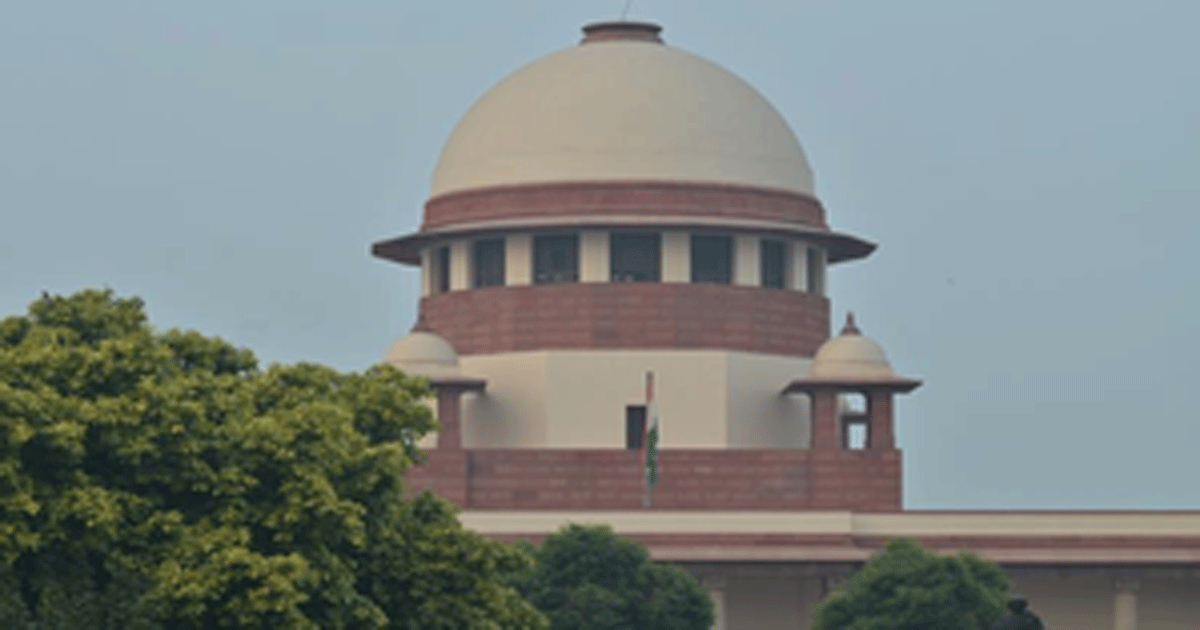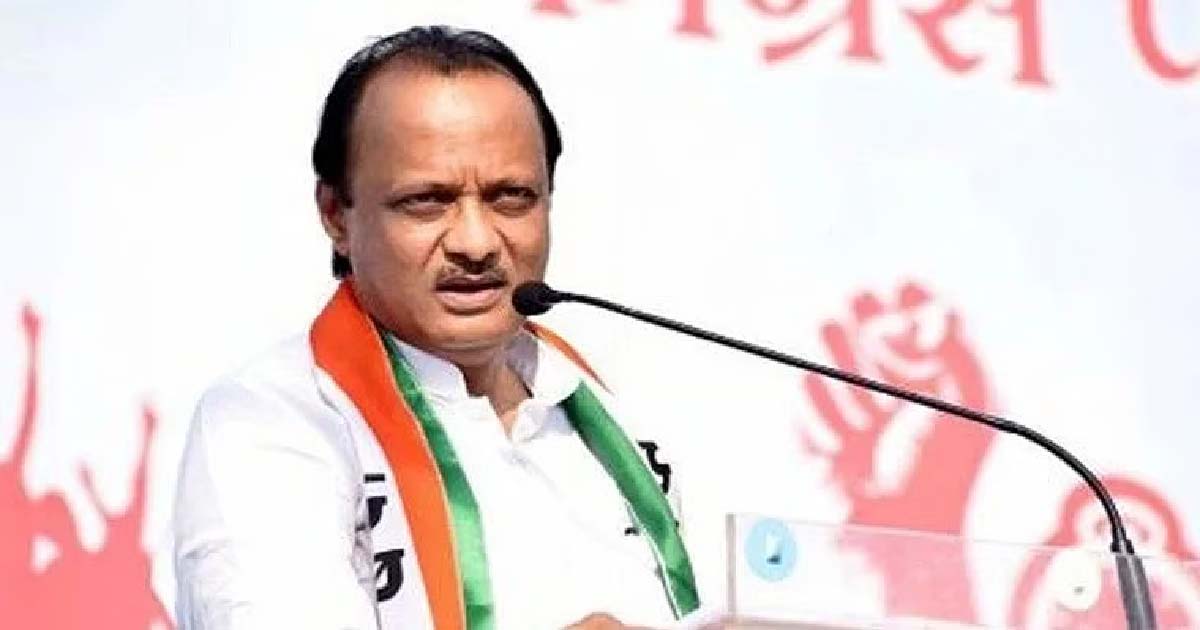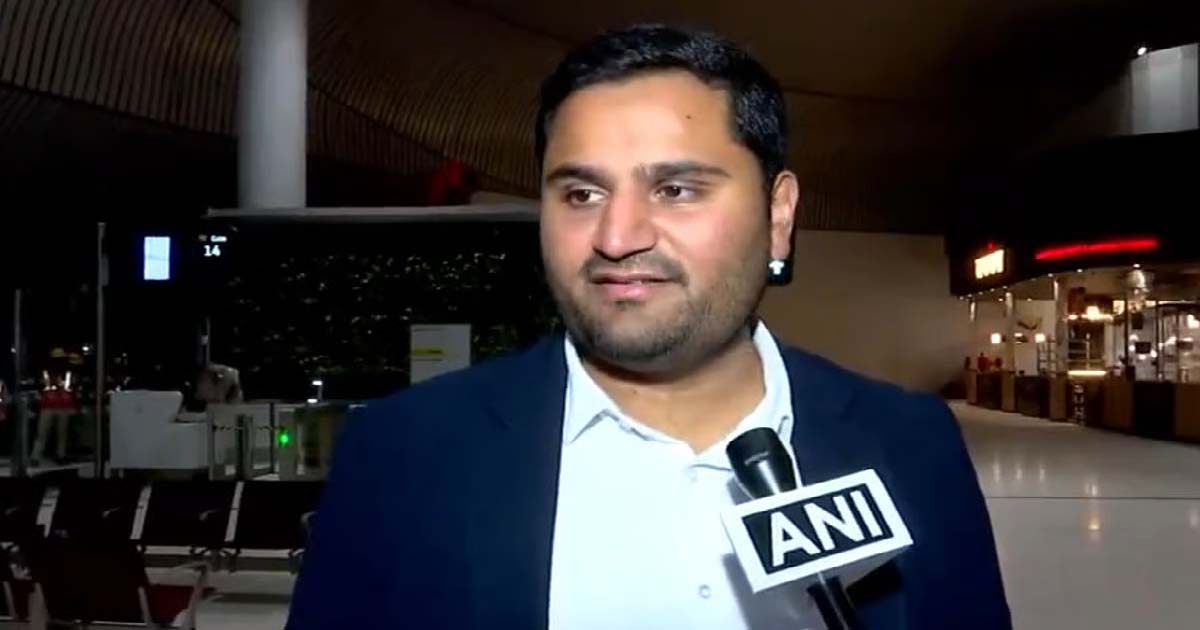National News
Farmers protest: SC grants additional time to Punjab govt to hospitalise Dallewal

New Delhi, Dec 31: The Supreme Court on Tuesday deferred till January 2 the hearing on a contempt plea seeking action against the Chief Secretary of Punjab for not complying with its earlier orders, where the Punjab government was directed to hospitalise farmer leader Jagjit Singh Dallewal.
The 70-year-old cancer patient has been fasting at Khanauri, the border point between Punjab and Haryana, since November 26 in support of their long-pending demands, including a legal guarantee for Minimum Support Price (MSP) for crops, loan waiver and reforms to improve conditions in the agricultural sector.
A Vacation Bench headed by Justice Surya Kant decided to defer the hearing after Punjab’s Advocate General (AG) Gurminder Singh sought additional time to comply with its December 20 decision, where the Punjab government was directed to ensure the stable health condition of Dallewal, who is on a fast unto death.
“It is entirely the responsibility of the State of Punjab to ensure the stable health condition of Mr Jagjit Singh Dallewal, for which if he requires hospitalisation, the authorities must ensure to do so. The State Government, therefore, will take a call as to whether Mr Dallewal can be shifted to the makeshift hospital (temporary hospital, which is said to have been set up at a distance of 700 metres from the site) or to any other well-equipped hospital,” the SC had ordered.
AG Gurminder Singh submitted before Justice Kant-led Bench that a proposal has been submitted before the Union government stating that if the protesting farmers are invited to hold talks, Dallewal will likely accept medical aid.
Adjourning the hearing to January 2, 2025, the Bench, also comprising Justice Sudhanshu Dhulia, said that it was only concerned with the compliance of its judicial orders and nothing else.
In a special sitting on Saturday, the top court pulled up the Punjab government over its failure to ensure the stable health condition of Dallewal.
After the Punjab government stated that other protesting farmers were obstructing the medical aid to Dallewal, Justice Kant-led Bench suggested that it could direct the Union government to provide logistical aid.
The apex court ordered the Punjab Chief Secretary and Director General of Police (DGP) to comply with its directions within two days and posted the matter for hearing on December 31.
It cautioned that if orders are not followed, the Supreme Court will consider framing charges of contempt of court against the officials on the next date of listing.
Earlier, the Supreme Court had issued notice on a plea seeking contempt action against the Chief Secretary of Punjab for not complying with the apex court’s orders.
It said, “Medical aid has to be given (to Dallewal) and the impression is that you (Punjab authorities) are not following our orders.”
Expressing concern over Dallewal’s life and safety, it had ordered the Punjab government to comply with its direction to get him hospitalised.
Before this, the Justice Kant-led Bench said that protesting farmers were free to put their grievances directly before the top court after it was told that the farmer leaders did not attend the meeting with the court-appointed panel.
Remarking that the court’s doors were always open, it said that farmers could put forth their demands directly before the apex court or through their authorised representative.
In September, the Supreme Court ordered the formation of a committee to amicably resolve the grievances of the farmers protesting at the Punjab-Haryana border. It had suggested the panel headed by Justice Nawab Singh, a former judge of Punjab and Haryana High Court, to hold negotiations with the protesting farmers for the removal of their tractors, trolleys, etc., from the National Highway for the ease of the general public.
Further, the apex court had granted liberty to farmers to shift their peaceful protests to an alternative site. Apart from Justice Nawab Singh, the panel comprised former Haryana DGP B.S. Sandhu, agricultural analyst Devender Sharma, Prof Ranjit Singh Ghuman, agricultural economist Dr Sukhpal Singh, and Prof Baldev Raj Kamboj as a special invitee.
National News
Maharashtra Deputy CM Ajit Pawar-Led NCP To Consider Solo Run In Thane As Allies Exclude It From Seat Talks

Thane: The Ajit Pawar-led NCP on Tuesday said it has kept open the option to contest the upcoming Thane municipal council elections separately as it was being kept out of the seat-sharing discussions by its allies in Mahayuti.
Nationalist Congress Party spokesperson Anand Paranjape claimed that while local leaders of the BJP and Shiv Sena have already initiated talks to finalise seat sharing in the TMC polls, the NCP has not been invited for these deliberations.
“Even though meetings of the alliance partners are underway, the NCP has not been invited. Therefore, we have begun preparations to contest the elections independently,” he said.
Our Thane district president, Najeeb Mulla, has not been contacted by either the BJP or the Shiv Sena, Paranjape claimed.
He said the NCP would declare its seat expectations only after being formally invited to the alliance talks.
He said 380 aspirants have been interviewed over the past two days.
“If the NCP is offered respectable representation in the alliance for the Thane Municipal Corporation, we are ready to contest together. Otherwise, the NCP is fully prepared to contest all 131 seats on its own,” he added.
Paranjape said the NCP favours contesting as part of the grand alliance wherever possible, but local tie-ups or independent contests would also be considered if necessary.
Referring to the recent elections to 288 municipal councils and nagar panchayats, Paranjape said mayors from the grand alliance of BJP, Shiv Sena, and NCP were elected in around 215 bodies.
“People of Maharashtra have reaffirmed their faith in the Mahayuti government led by Chief Minister Devendra Fadnavis and Deputy Chief Ministers Ajit Pawar and Eknath Shinde,” he added.
The long-awaited polls to 29 municipal corporations in Maharashtra, including cash-rich Mumbai, will be held on January 15, and votes will be counted on the following day.
Crime
Delhi Police arrest female drug peddler, seize ganja and cash

New Delhi, Dec 23: In a major boost to the Centre’s ‘Drug-Free India’ campaign, Delhi Police have arrested a female drug peddler in Nihal Vihar and recovered 341 grams of ganja along with Rs 3.72 lakh in cash, suspected to be proceeds from the sale of narcotics, officials said on Tuesday.
According to Delhi Police, the action was carried out by a patrolling team of Police Station Nihal Vihar on December 20, following specific directions from the Deputy Commissioner of Police, Outer District, to maintain heightened vigilance against drug trafficking.
The team, comprising ASI Arvind, Woman Head Constable Yogita and Constable Sanjeet, was on routine patrol in the Adhyapak Nagar area when they noticed a suspicious woman standing near a house close to Pari Garden with a brown-coloured carry bag.
Police said that as soon as the woman noticed the patrol team, the crowd gathered around her dispersed, and she attempted to flee.
“On sensing the police staff, the crowd dispersed immediately, and the female carrying the brown-coloured carry bag also attempted to flee, but the vigilant team swiftly chased and apprehended her on the spot,” the police said in its press note.
Upon weighing, the contraband was found to be 341 grams of ganja. A total sum of Rs 3,72,830 was also recovered, which police believe to be proceeds from the illegal sale of narcotics.
The seized drugs and cash were confiscated on the spot following due legal procedures.
Subsequently, a case was registered at Police Station Nihal Vihar vide FIR No. 960/2025 under Section 20(b)(ii)A of the Narcotic Drugs and Psychotropic Substances (NDPS) Act. The accused woman was formally arrested in the case.
Further verification revealed that the accused has a criminal history and was previously involved in more than five cases under the Delhi Excise Act, police said.
“The Outer District police remain committed to eliminating narcotics-related crimes and safeguarding the community,” said DCP Sachin Sharma.
National News
‘Stolen Symbol, Hollow Claim’: Shiv Sena (UBT) Attacks Maharashtra Deputy CM Eknath Shinde’s ‘Real Sena’ Assertion After Local Body Polls

Mumbai: The Shiv Sena Uddhav Balasaheb Thackeray (UBT) on Tuesday attacked Deputy Chief Minister and Shiv Sena chief Eknath Shinde over his claim that Maharashtra local body polls have finally settled the debate over the “real” Shiv Sena.
In a scathing editorial in the party’s mouthpiece, ‘Saamana’, the Thackeray camp claimed, “The liars say, ‘Our Shiv Sena is real!’ But what is real and what is fake – the common people of the state recognise this. Those who dedicated their victory to Modi-Shah’s feet, the symbol ‘Shiv Sena’ does not suit those thieves. These same Modi-Shah stole the bow and arrow and handed it over to eight traitors in Maharashtra. The theft of Lok Sabha, Vidhan Sabha and local body elections has taken the form of ‘yours, mine, theirs’. The picture ahead will be different – we have no doubt about this.”
According to the editorial, Eknath Shinde has claimed credit for the work shown by the real Shiv Sena people. This is a hollow credit. His party’s claim of solid work in Lok Sabha, Vidhan Sabha and now local body elections is hollow. “Originally, the name ‘Shiv Sena’ and the symbol bow and arrow were obtained through Amit Shah’s pressure. The merit of the bow and arrow is significant, and Balasaheb Thackeray, the Shiv Sena chief, had established the ‘bow and arrow’ in every household. These ‘merits’ have been stolen and the real Shiv Sena is being talked about,” said the editorial.
It further stated that the dispute between Shiv Sena and the bow and arrow is still pending in the Supreme Court. The Supreme Court has given six months’ time for the Election Commission to make a decision. “Dates are not being set there, but after 40 MLAs crossed over to the other side and the decision was made according to law and constitution, Shiv Sena and bow and arrow are encouraging a decision on whose symbol it is!” the editorial said.
The Thackeray camp said that despite the electoral successes of the Shinde-led Shiv Sena, legal disputes regarding the party’s “real” status and official symbols remain unresolved. It said, “The Supreme Court has scheduled a final hearing for January 21, 2026, to address the symbol dispute between the Uddhav Thackeray and Eknath Shinde factions. A similar hearing for the NCP symbol dispute is set for January 22, 2026. The year ends with political parties shifting focus toward the Brihanmumbai Municipal Corporation (BMC) elections, which are slated for January 15.” The editorial has even questioned the timing of the hearing in the court.
The Uddhav Thackeray-led Shiv Sena alleged, “The results of local body elections are bought and sold through auction. There is no integrity or transparency found anywhere in these results. The ruling party has acquired the art of buying the machinery and voters, and people like Amit Shah kindly make them win elections by stealing the Shiv Sena and bow and arrow. As Chief Minister Devendra Fadnavis vows to transform the face of the state following these results, the opposition remains defiant. They describe the current political state as one of ‘looting and deception’ and express confidence that the political picture in Maharashtra will shift in the future,” said the editorial.
-

 Crime3 years ago
Crime3 years agoClass 10 student jumps to death in Jaipur
-

 Maharashtra1 year ago
Maharashtra1 year agoMumbai Local Train Update: Central Railway’s New Timetable Comes Into Effect; Check Full List Of Revised Timings & Stations
-

 Maharashtra1 year ago
Maharashtra1 year agoMumbai To Go Toll-Free Tonight! Maharashtra Govt Announces Complete Toll Waiver For Light Motor Vehicles At All 5 Entry Points Of City
-

 Maharashtra1 year ago
Maharashtra1 year agoFalse photo of Imtiaz Jaleel’s rally, exposing the fooling conspiracy
-

 National News1 year ago
National News1 year agoMinistry of Railways rolls out Special Drive 4.0 with focus on digitisation, cleanliness, inclusiveness and grievance redressal
-

 Maharashtra1 year ago
Maharashtra1 year agoMaharashtra Elections 2024: Mumbai Metro & BEST Services Extended Till Midnight On Voting Day
-

 National News1 year ago
National News1 year agoJ&K: 4 Jawans Killed, 28 Injured After Bus Carrying BSF Personnel For Poll Duty Falls Into Gorge In Budgam; Terrifying Visuals Surface
-

 Crime1 year ago
Crime1 year agoBaba Siddique Murder: Mumbai Police Unable To Get Lawrence Bishnoi Custody Due To Home Ministry Order, Says Report












